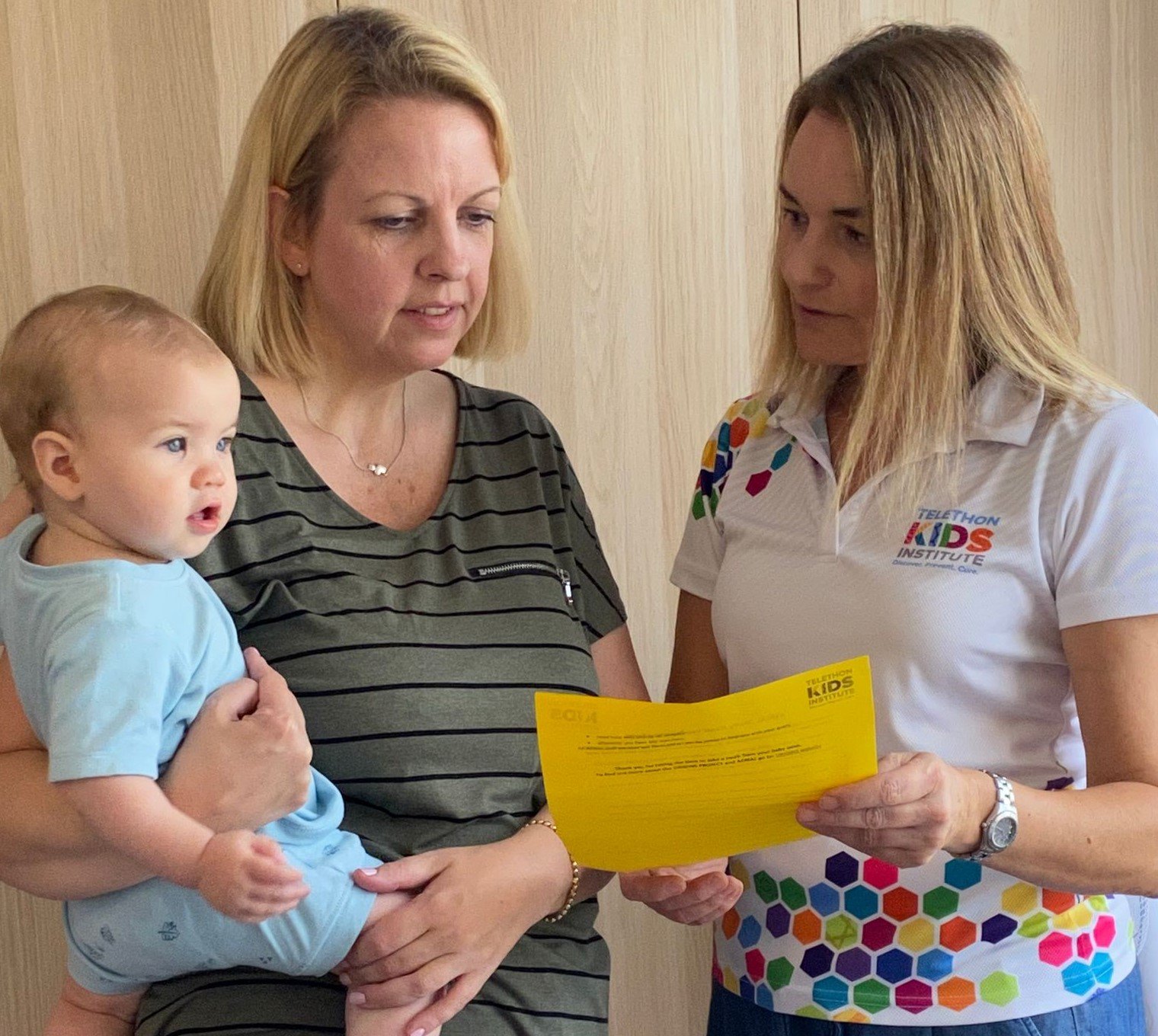Search

ORIGINS is collecting physiological, biological and clinical data from the mother, partner/father and child at numerous points to track development and change.

A list of organisations that currently collaborate with ORIGINS.

Information for the 10,000 families participating in ORIGINS. Recruitment has now closed.

Find information on each session, and your pre-appointment checklist to ensure you are prepared.
Get in Touch Dropping off a sample or attending a Kids Check appointment? Visit us at our Edgewater clinic. The Kids Joondalup Shop 51, Joondalup
Get in Touch Dropping off a sample or attending a Kids Check appointment? Visit us at our Edgewater clinic. The Kids Joondalup Shop 51, Joondalup
Information about withdrawing from the study

Find answers to frequently asked questions about ORIGINS.

This project aims to examine whether maternal probiotic supplementation promotes an enhanced immunomodulatory breastmilk composition likely to promote infant oral tolerance, and reduce food allergy in breastfed children.

Breastfeeding and Eating Nuts and Eggs for Infant Tolerance
